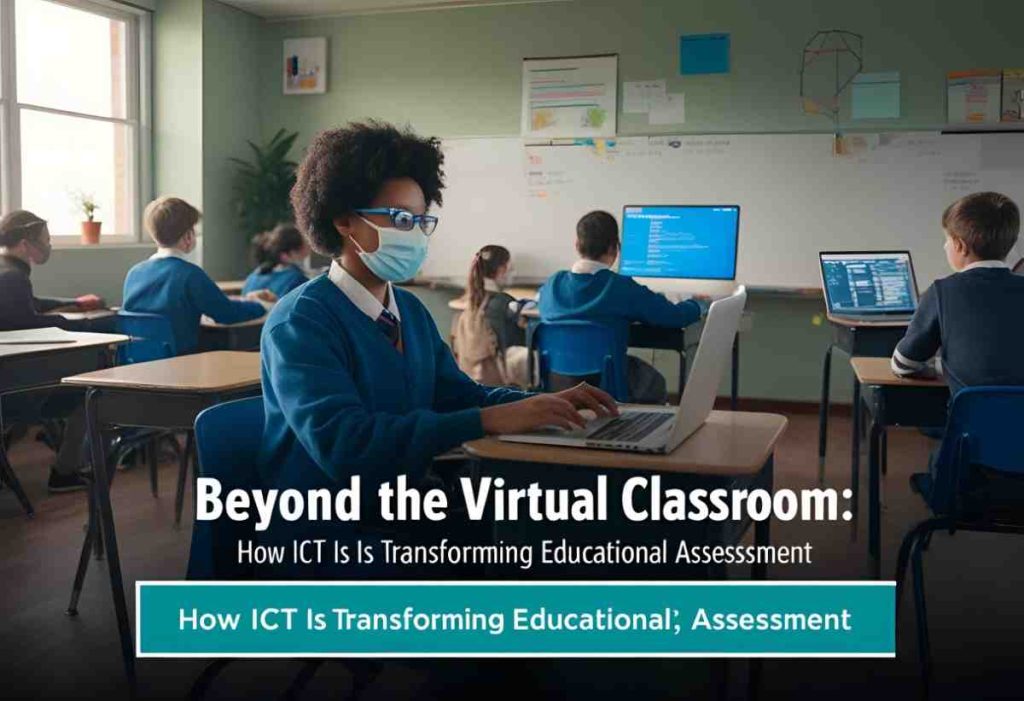Beyond the Virtual Classroom: How ICT Is Transforming Educational Assessment

When most people think about ICT in education, their minds jump to online classes, digital textbooks, or learning management systems. But there’s a quieter, equally important revolution happening in the background: the transformation of educational assessment through Information and Communication Technology.
Rethinking Assessment in the Digital Age
Traditional assessments-think paper-based exams, quizzes, and essays-have long been the backbone of education. However, these methods often struggle to capture the full range of a student’s abilities, especially in areas like creativity, collaboration, and critical thinking. Enter ICT-powered assessment tools, which are redefining how educators measure learning.
Adaptive Testing: Personalization at Scale
One of the most exciting developments is adaptive testing. Unlike static tests, adaptive assessments use algorithms to adjust the difficulty and sequence of questions in real-time, based on a student’s responses. This means:
More Accurate Measurement: Students are neither bored with questions that are too easy nor overwhelmed by those that are too hard.
- More Accurate Measurement: Students are neither bored with questions that are too easy nor overwhelmed by those that are too hard.
- Efficient Testing: Adaptive systems can often reach a reliable assessment in fewer questions, saving time for both students and teachers.
- Personalized Learning Paths: Results can be used to tailor instruction to each learner’s strengths and weaknesses.
Tools like MAP Growth and Duolingo English Test exemplify how adaptive testing is being used in classrooms and for international certification.
Automated Feedback: Instant and Actionable
ICT also enables automated feedback on assignments, quizzes, and even complex projects. AI-powered platforms can:
- Provide immediate feedback on multiple-choice and short-answer questions.
- Analyze essays for grammar, coherence, and even argument strength.
- Offer hints and resources when students make mistakes, turning assessment into a learning opportunity.
This instant feedback loop helps students correct misunderstandings in real-time, rather than waiting days or weeks for graded papers.
New Forms of Assessment: Beyond Exams
With ICT, assessment isn’t limited to traditional formats. Educators are exploring:
- Digital Portfolios: Students can curate collections of work-videos, presentations, code, art-demonstrating growth over time.
- Simulations and Virtual Labs: Learners can be assessed on how they solve real-world problems in safe, virtual environments.
- Peer Assessment: Online platforms make it easy for students to review and provide feedback on each other’s work, building critical evaluation skills.
Challenges and Considerations
With ICT, assessment isn’t limited to traditional formats. Educators are exploring:
- Digital Portfolios: Students can curate collections of work-videos, presentations, code, art-demonstrating growth over time.
- Simulations and Virtual Labs: Learners can be assessed on how they solve real-world problems in safe, virtual environments.
- Peer Assessment: Online platforms make it easy for students to review and provide feedback on each other’s work, building critical evaluation skills.
The Road Ahead
As ICT continues to evolve, so too will our approaches to assessment. The future may see more immersive, AI-driven evaluations that assess not just what students know, but how they think, collaborate, and create. For educators, this means a powerful new toolkit to support every learner’s journey.
By moving beyond the virtual classroom and into the realm of assessment, ICT is helping education become more personalized, efficient, and meaningful-one test at a time.
References
- “Innovating Assessments to Measure and Support Learning.” OECD Education Working Papers, 2020.
- Williamson, Ben, and Rebecca Eynon. “Historical Threads, Missing Links, and Future Directions in AI in Education.” Learning, Media and Technology, 2020.
- Redecker, Christine. “The Future of Assessment: How ICT Is Transforming Educational Assessment.” European Commission, Joint Research Centre, 2013.
- Duolingo English Test. “How the Adaptive Test Works.” Duolingo, 2024.



